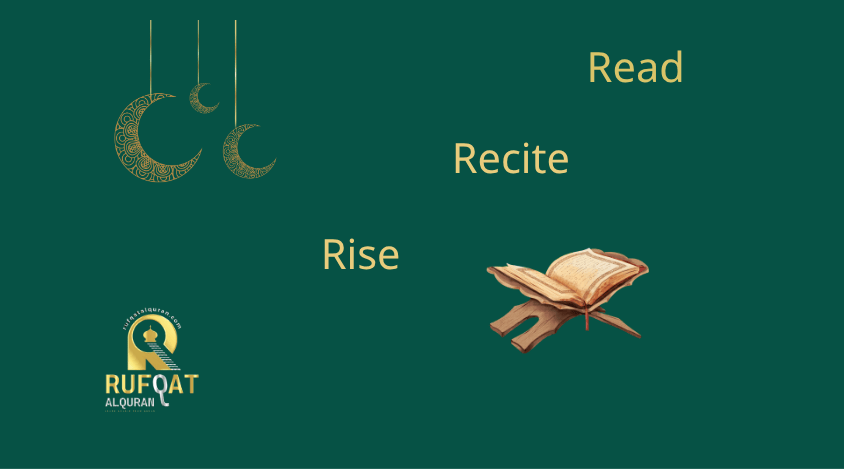Hadith
Hadith Science is the discipline concerned with studying the sayings, actions, approvals, and characteristics of the Prophet Muhammad ﷺ. It focuses on verifying the authenticity of hadiths by examining both the chain of narrators (isnād) and the text of the hadith (matn). This science is one of the most important branches of Islamic knowledge, as it helps Muslims understand and apply the Sunnah in their daily lives. It also plays a critical role in preserving the religion and ensuring that Islamic teachings are passed down accurately. Famous Hadith collections include Sahih al-Bukhari, Sahih Muslim, and Sunan Abi Dawood.
- By Rufqat al Qur'an
Tajweed
Tajweed is the science that deals with the proper pronunciation of the letters and words of the Qur'an, as transmitted from the Prophet Muhammad ﷺ. It aims to ensure correct recitation of the Qur’an, preserving both its meaning and its beauty. Key rules of Tajweed include: Iẓhār (clear pronunciation), Ikhfāʾ (hiding), Idghām (merging), Madd (prolongation), and the rules of stopping and starting. Learning Tajweed is essential for anyone who wants to recite the Qur’an properly. It helps in understanding the words of Allah as they were revealed and is a form of honoring and respecting the Qur’an.
- By Sara Mukhtar
Fiqh and Islamic Rulings
Fiqh is the Islamic science that deals with understanding the practical rulings of Shari’ah (Islamic law) derived from its detailed sources. It is one of the most honorable sciences because it guides Muslims in their daily actions and helps them fulfill their religious obligations properly. Fiqh covers the rulings related to acts of worship such as prayer, zakat, fasting, and pilgrimage, as well as transactions like trade, leasing, marriage, divorce, and more. The purpose of learning Fiqh is to enable Muslims to practice their religion correctly, as commanded by Allah and His Messenger ﷺ. Fiqh is built upon clear principles and foundations, based on the primary sources of Islamic law: the Qur’an, the Sunnah, consensus (ijma’), and analogical reasoning (qiyas). Over time, scholars have developed different schools of thought (such as Hanafi, Maliki, Shafi’i, and Hanbali), all striving to serve the objectives of Shari’ah with evidence and wisdom. Understanding Fiqh is not just about knowing what is halal or haram; it is about developing Islamic awareness that shapes the Muslim’s character, refines their conduct, and ensures they live a life of devotion, balance, and responsibility.
- By Sara Mukhtar
Article about the Qur'an
The Holy Qur'an is the miraculous book of Allah, revealed to the Prophet Muhammad ﷺ as guidance for humanity, a light for the hearts, and a healing for what lies within the soul. The Qur'an presents a complete way of life; it is not merely a book of worship but a comprehensive constitution that governs the relationship between a person and their Lord, themselves, and others. The Qur'an is distinguished by its eloquence, profound meanings, and the harmony of its verses, making it an everlasting miracle until the Day of Judgment. Allah has promised to preserve it, saying: “Indeed, it is We who sent down the Reminder, and indeed, We will be its guardian.” (Surah Al-Hijr 15:9) Within its verses, the Qur'an carries the stories of the prophets, legal rulings, moral guidance, and spiritual teachings that encourage good and forbid evil. It is a book to be recited, memorized, reflected upon, and acted upon. Its recitation is an act of worship, its reflection is a duty, and its application is the path to salvation. The Qur'an is not just a sacred text; it is a lifelong companion, a complete guide, and a source of faith and tranquility in a chaotic world. The closer one is to the Qur'an, the more they are guided, enlightened, and steadfast on the right path.
- By Sara Mukhtar





